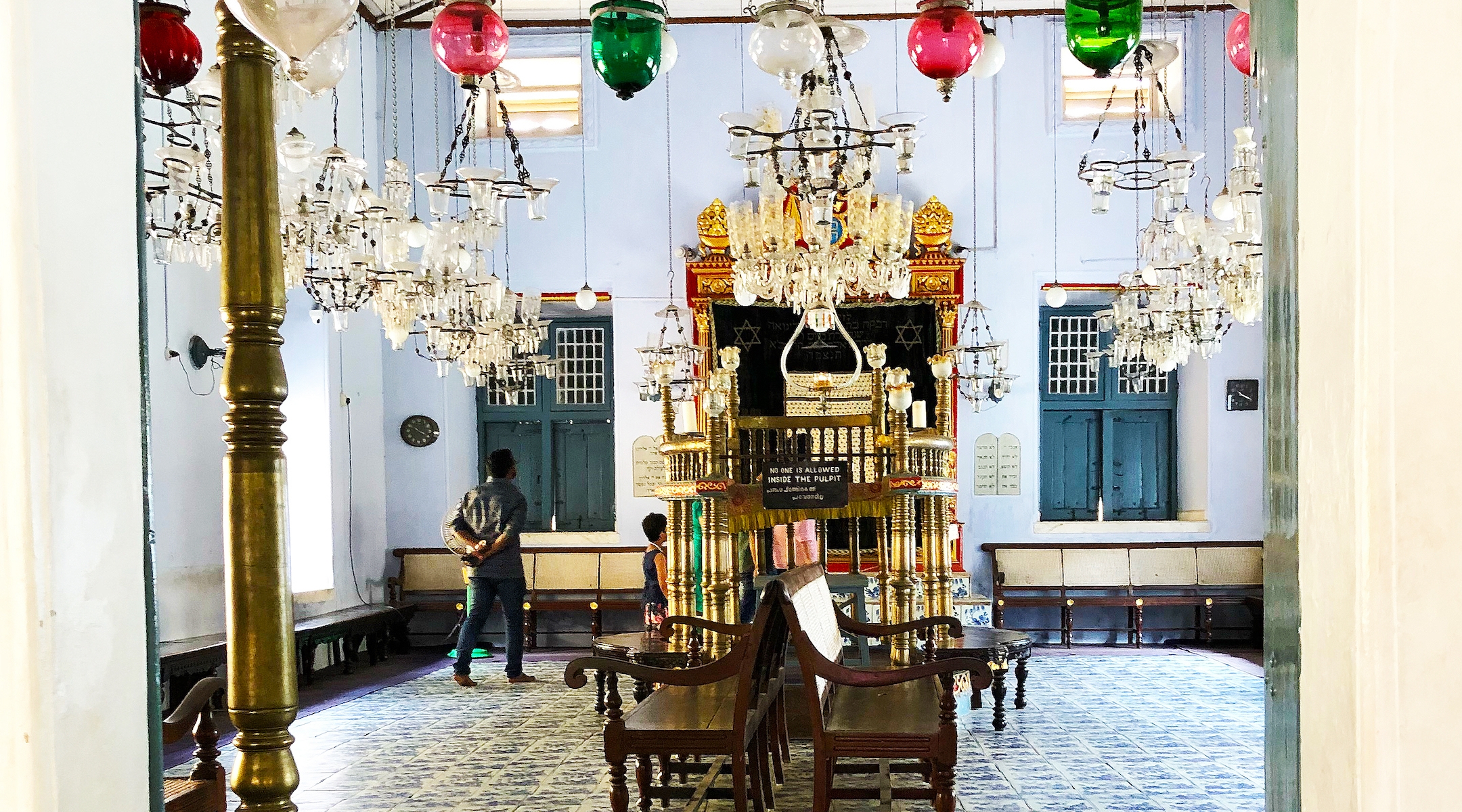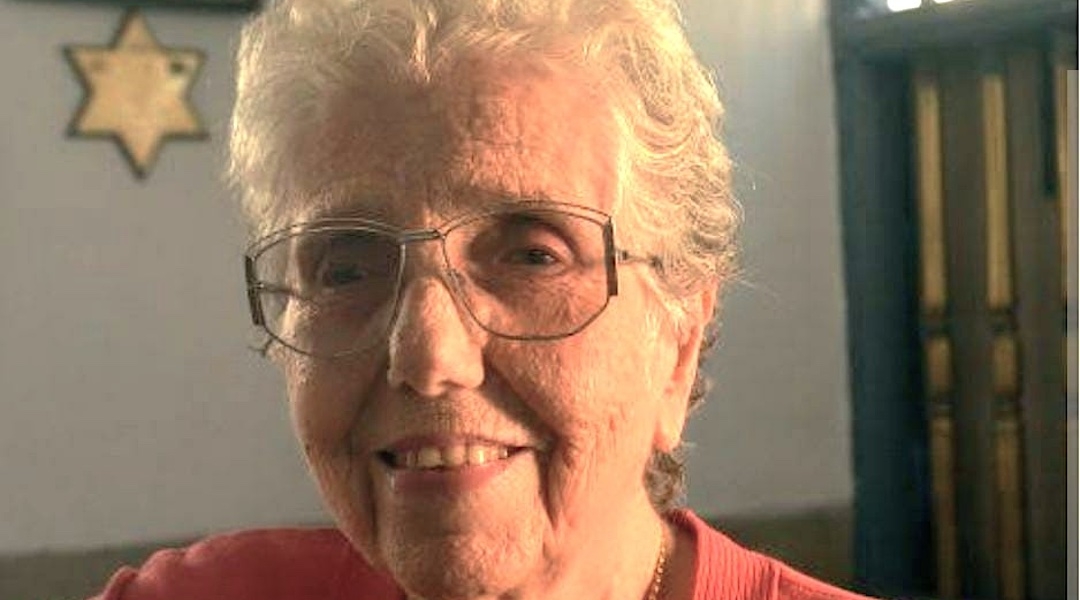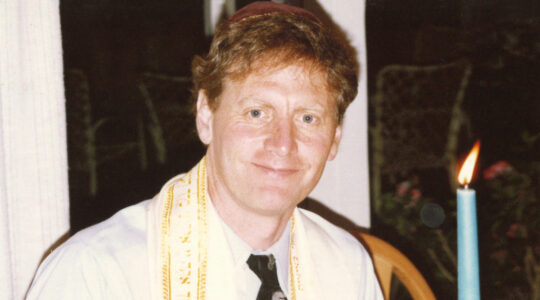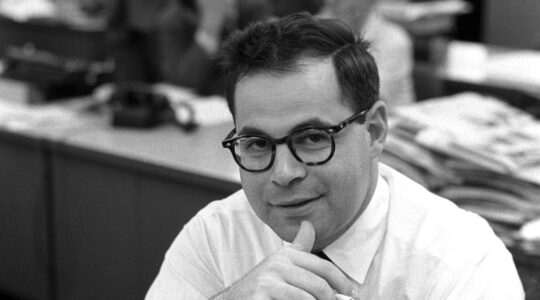Four years ago, when a Jewish Telegraphic Agency correspondent visited Kochi, India, researcher Shalva Weil said only two Jews were still living in Jew Town, a vibrant community where perhaps 3,000 Jews lived at its peak in the 1950s.
On Sunday, one of those two survivors died: Newspapers in India reported that Queenie Hallegua, the last of the Paradesi, or “foreign,” Jewish women in Kochi, died at age 89, leaving her nephew Keith Hallegua as the last Jew in Kochi.
Queenie Hallegua was the warden and managing trustee of the Paradesi Synagogue, a 450-year-old landmark, from 2012 to 2018. She was also managing partner, until 2011, of the S. Koder House, a boutique hotel in a house once owned by her grandfather, Shabdai Samuel Koder, an Iraqi immigrant who settled in Kochi in the early 20th century and later owned the local electric company. Hallegua sold the property to the hotel’s current owners, and it remains a popular spot for tourists.
Queenie and her late husband Sammy hosted Queen Elizabeth and her husband, Prince Philip, when they came to the Paradesi Synagogue in the Mattancherry neighborhood in October 1997.
“We were overjoyed,” Queenie recalled in a 2022 interview with the New Indian Express. “She was impressed by the architecture and the history of the synagogue. When we told her that the tiles inside were 18th-century, hand-painted ones imported from Canton [Guangdong] in China, she exclaimed it was wicked to walk on them. My husband and I could not hide our smiles.”

A look inside the Paradesi Synagogue in Kochi, founded over 450 years ago. (Christabel Lobo)
Elizabeth presented the synagogue with a silver kiddush cup on behalf of her subjects.
The first Jews to arrive on the Malabar coast of India, on the Arabian Sea, came in the first century BCE as sailors — on King Solomon’s boats, as legend has it. Known as Malabari Jews, the families of traders moved south to present-day Kochi, previously known as Cochin, where they built the Kochangadi Synagogue, the area’s first Jewish house of worship. By the 16th century, Jews fleeing the Spanish and Portuguese Inquisitions, as well as Mizrahi Jews from the Middle East and North Africa, had come together to form the Paradesi community centered in Jew Town.
According to a 1911 census, there were seven synagogues in the Cochin area and a Jewish population that exceeded 1,000.
The community flourished until the middle of the 20th century and suffered little by way of persecution or hardship; after the creation of the State of Israel in 1948, many from the mostly Orthodox community chose to emigrate and start a new life in the Jewish state.
Queenie’s funeral was held at the Gan Shalom Jewish cemetery near the Paradesi Synagogue. Mourners included her son and daughter, both of whom live in the United States; her nephew; Malabari Jews from outside the area, and three Jewish tourists from Israel.
“She was an aristocratic, brave and clever woman,” Weil recalled in a Facebook post Sunday.
Jonathan Goldschmidt, a Jerusalem rabbi who would often visit the Paradesi Synagogue as a scholar in residence and kosher supervisor, recalled that Hallegua’s home was “forever a place of community life, meals, meetings and important decisions.”
“The legacy of the [Paradesi] Synagogue, much like the Hallegua family is one of permanence,” he wrote on Facebook. He added, “The story of the Jews of India is an important one for our people: it speaks stories of family, tolerance, adaption, hard work, fidelity to tradition and an unwavering dedication to Torah: such a light cannot ever be snuffed out completely, it retains the ability of igniting itself and others eternally.”
JTA has documented Jewish history in real-time for over a century. Keep our journalism strong by joining us in supporting independent, award-winning reporting.






